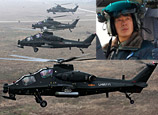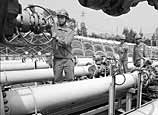
China will quicken the opening up of the capital market in 2013, by attracting more foreign investors and facilitating the development of asset management and futures businesses, the country's top securities regulator pledged on Tuesday.
"The investment quota for Qualified Foreign Institutional Investors (QFII) and Renminbi-QFII (RQFII) will continually expand in order to satisfy the growing overseas investment demand," said a statement from the China Securities Regulatory Commission, or CSRC.
"The policy to regulate Qualified Domestic Institutional Investors, or QDII, will continue to be improved," it said.
The statement came at the end of the annual CSRC work conference, which set the blueprint for 2013.
"We will accelerate the pilot program for futures companies launching brokerage businesses overseas, support the development of cross-border exchange traded funds, or ETFs, and bond markets," the statement said.
Guo Shuqing, chairman of the CSRC, said: "The opening should speed up. It is impossible to delay the opening based on the current market situation, or we will suffer incredible losses."
He said more foreign institutions, including fund management companies and securities business, will be encouraged to launch asset management services on the Chinese mainland, which can help reduce speculative activities from individual investors, and stabilize the market.
A week earlier, Guo indicated in Hong Kong that foreign investors will be welcome to inject funds into the mainland's A-share market. He looked forward to the likelihood that the QFII and RQFII quotas will increase at least nine to 10 times.
Xu Jian, director of the Financial Research Center under Nanhua Futures Co Ltd, said: "China's stock market is expected to see a huge injection of foreign investment in the coming months, which may boost the benchmark stock index."
In 2012, the Shanghai Composite Index increased by 3.17 percent.
According to the CSRC, the QFIIs had seen a cumulative investment of $37.4 billion as of December, and the quota had been raised to $80 billion last year.

















 This is the most real, most helpless and most motivate life expense of Beijing!
This is the most real, most helpless and most motivate life expense of Beijing!


![]()
